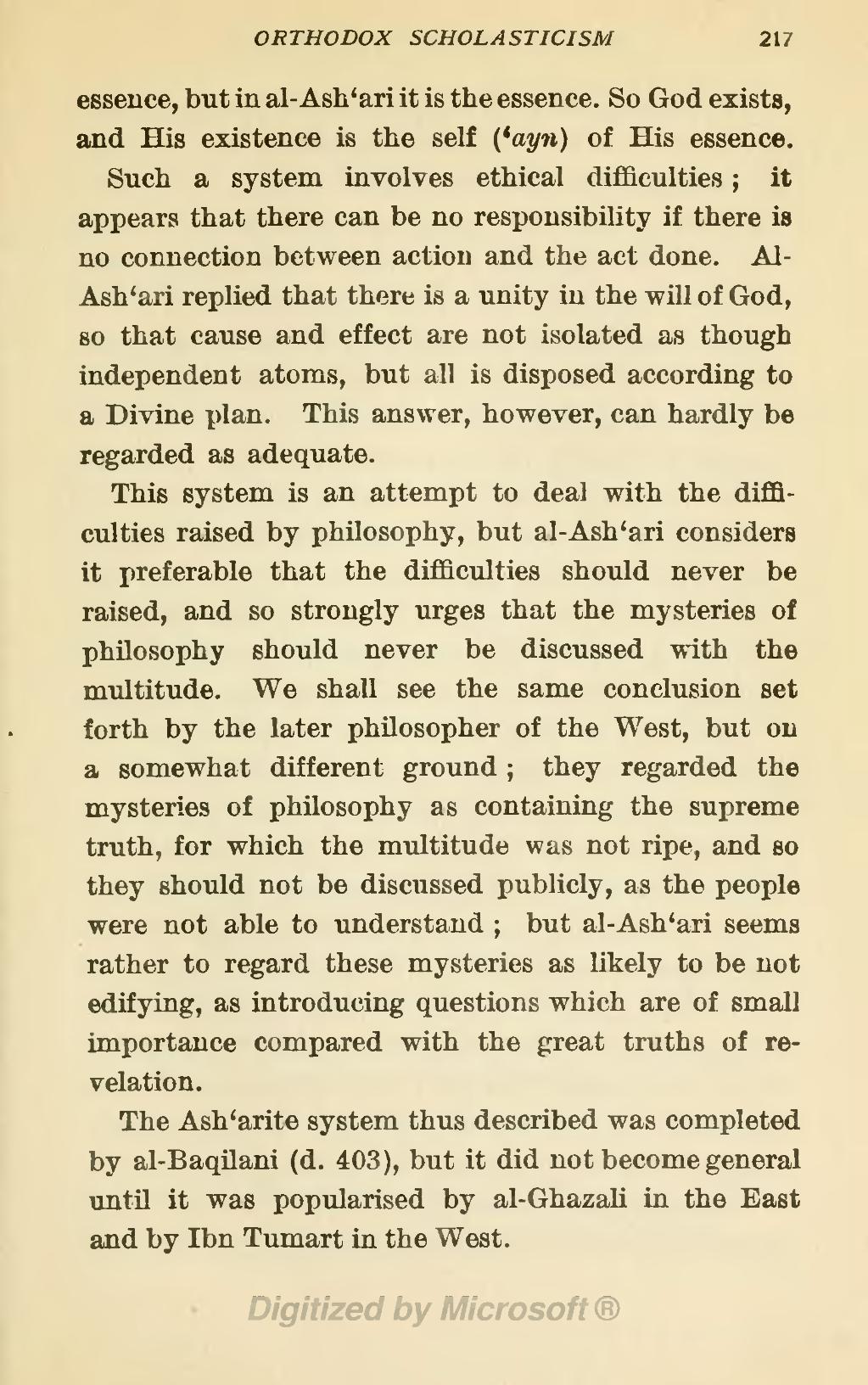essence, but in al-Ash'ari it is the essence. So God exists, and His existence is the self ('ayn) of His essence.
Such a system involves ethical difficulties; it appears that there can be no responsibility if there is no connection between action and the act done. Al-Ash'ari replied that there is a unity in the will of God, so that cause and effect are not isolated as though independent atoms, but all is disposed according to a Divine plan. This answer, however, can hardly be regarded as adequate.
This system is an attempt to deal with the difficulties raised by philosophy, but al-Ash'ari considers it preferable that the difficulties should never be raised, and so strongly urges that the mysteries of philosophy should never be discussed with the multitude. We shall see the same conclusion set forth by the later philosopher of the West, but on a somewhat different ground; they regarded the mysteries of philosophy as containing the supreme truth, for which the multitude was not ripe, and so they should not be discussed publicly, as the people were not able to understand; but al-Ash'ari seems rather to regard these mysteries as likely to be not edifying, as introducing questions which are of small importance compared with the great truths of revelation.
The Ash'arite system thus described was completed by al-Baqilani (d. 403), but it did not become general until it was popularised by al-Ghazali in the East and by Ibn Tumart in the West.
